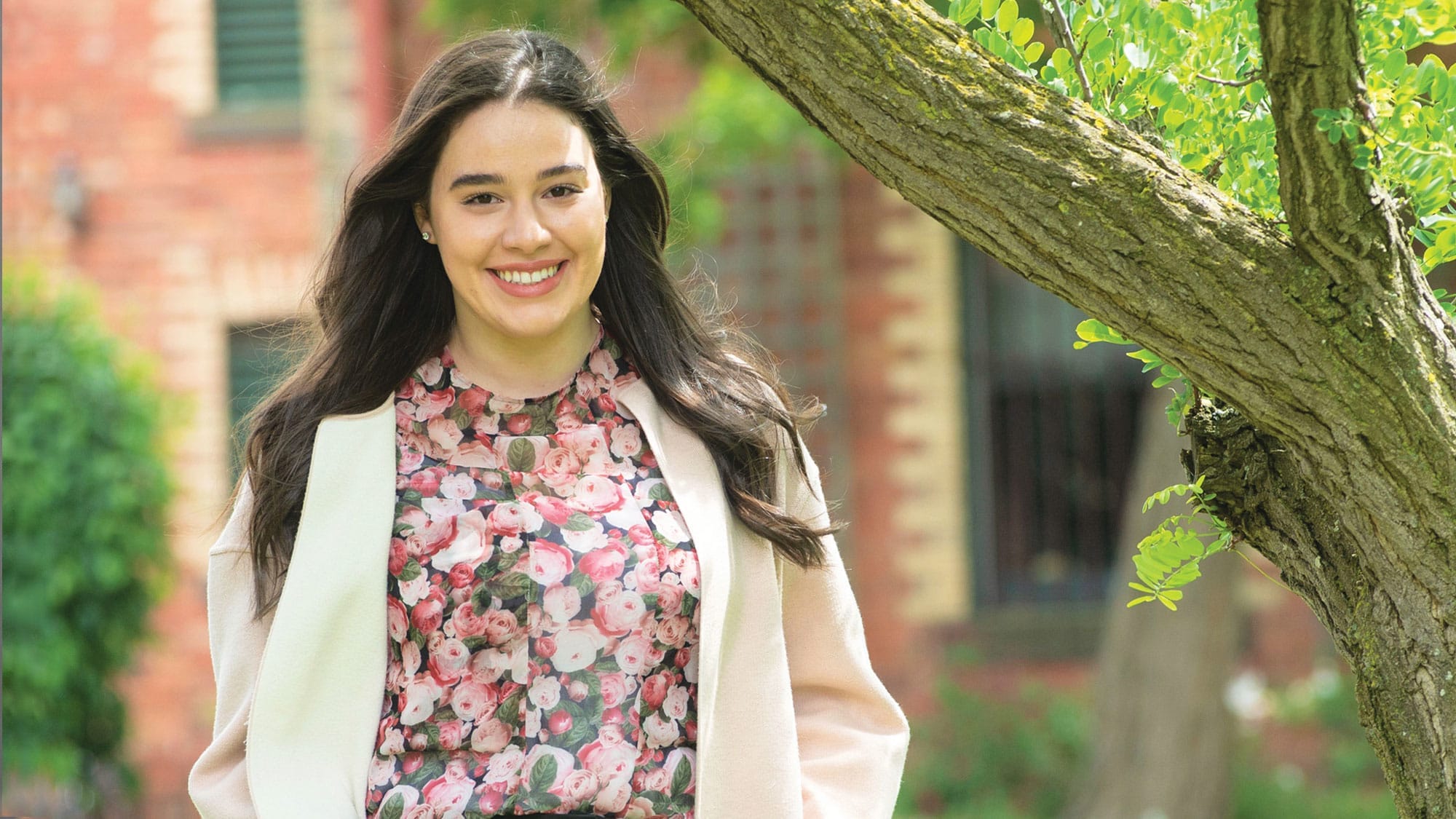
Learning a language isn’t just about grammar and vocabulary, says Italian teacher Rosa Sfameni. It’s about opening a window to the world and making a connection with others. It’s why in her classroom – virtual or otherwise – she encourages conversation around culture: food, music and traditions … aspects of life everyone has in common.
Introducing cultural perspectives, and asking, “How is this different to your culture or other cultures?” can help students appreciate they’re part of something bigger than their own backyard, she says.
“I want to make them aware that our world is much larger than our school, our community, our country – and having a language unlocks that world,” says Sfameni, whose passion for Italian culture was passed to her from her grandparents. “It allows you to be part of someone else’s culture and relate to them.”
It’s an approach she’s honed, because she wrote the curriculum. Italian had only recently been introduced to Hume Anglican Grammar when she arrived for her first job out of university, so the slate was blank. Designing a curriculum is a huge undertaking for any teacher, let alone a graduate, but it’s one that has paid off.
Italian has grown in popularity in her four years at the school, and in 2019 the student body voted her Education HQs Italian Teacher of the Year in its Unsung Heroes awards. “I think it’s really highlighted that students enjoy the language component of their learning, and there’s excitement around it,” says Sfameni, who also teaches music, and is equally enthused about the opportunities for innovation and creativity it presents.
Heightening that excitement was a study tour Sfameni had organised (and is now postponed) to Italy and the Monash Prato Centre – a place where her students could soak up Italian culture, and where she says she found her voice and confidence as a teacher.
Monash Prato Centre
The Monash University Prato Centre is a teaching and research centre in Tuscany, Italy. The centre hosts executive education programs and international conferences, organised by Monash and other academic institutions and corporates.
During her earlier three-week visit as part of her Monash teaching course, Sfameni was posted to a school for teaching rounds. She was daunted by the prospect, but finished on a high after introducing collaborative techniques she had learned through study, and had intuitively stumbled upon years before as a volunteer catechist at Sunday school when she was only 13.
“The religious program was taught very traditionally and, for the young kids, I didn’t think that was the best way, so I started to introduce group work and talking amongst themselves,” she says. “And students were really receptive.”
On entering the Prato classrooms, Sfameni encountered the same traditional “chalk and talk” approach. So she decided to experiment with group work and having students move around the classroom. “It could have ended badly, but the teachers really enjoyed learning from me as much as I was learning from them,” she says.
The experience provided some of the best days of her teaching career, Sfameni says, and she returned to Australia “more confident in every single way”. She no longer underestimated herself.
“By the end of it, I thought, if I can do this and dive into such a challenging, eye-opening experience, then I think I could do anything back at home,” she says. “And that’s exactly what has happened. That challenge inspired me to do things people don’t expect young graduates to do, like organise an overseas trip.”
That trip, an idea since 2018, has had to be delayed thanks to COVID-19, and is on hold until at least September 2021.
It was devastating for the students who had never before been offered an overseas trip with school, Sfameni says. “I went overseas when I was their age and it was the highlight of my schooling, and I want that experience for them,” she says. “It’s a stepping stone in their maturity and independence. And they were gutted when they found out they couldn’t go.”
In its place, Sfameni is using online resources such as YouTube and news sites to bring culture to the students and discuss what is happening in Italy, which was hit hard and early by COVID-19.
The pandemic, while scuttling her travel plans, has provided another opportunity to teach her students about their place in a global community. “I can show them this particular crisis isn’t just right here, right now, in their own homes,” she says. “There are people suffering elsewhere, and we’re all part of something bigger.”





